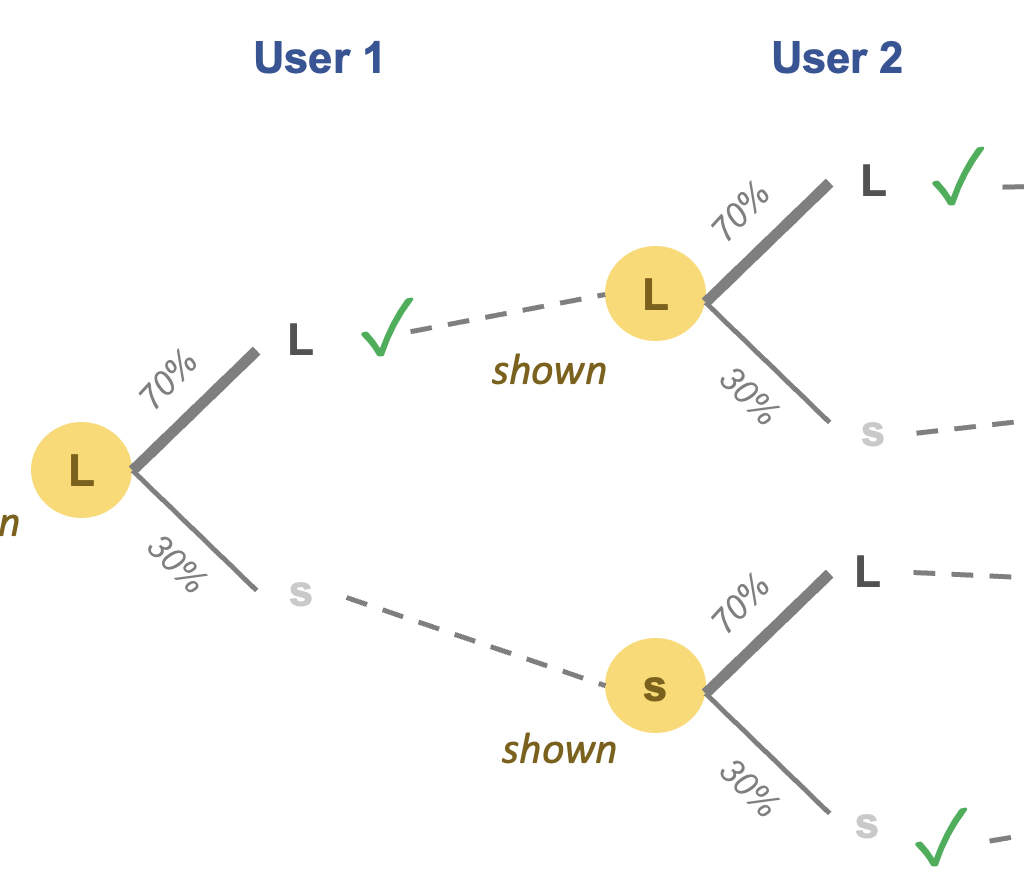The New York Times publishes another advertisement as news
The New York Times strikes again. Here is another article which makes you wonder if it is a press release by companies selling personal DNA test kits, or is it serious science/health reporting?
The article claims that there are two new studies which support removing restrictions to the sales of personal DNA test kits to the public. It turns out the studies are far from convincing (the first one is utterly worthless while the second one is hard to judge based on what is reported). Also, the argument has nothing to do with science. Egregiously, the entire article contains not one statistic even though the argument is purpurtedly supported by "new research", "two separate studies of genetic tests".
***
First, let's look at the argument:
Most people say they'll pay for genetic tests even if the predictions are sometimes wrong, and most people don't seem to be traumatized even when they receive bad news.
Later, we are told that:
Most people [surveyed] said they'd be willing to spend money out of their own pocket for the test.
So the Times thinks that it is ok for medical tests to tell lies just because people don't care. And that if people are willing to pay for something, they should get it. You'd have expected to read about science but that's not what we get. For example, the entire article says not one word about how predictive DNA information is for various types of diseases. (I don't have first-hand knowledge but I suspect that for most diseases, genetics is only mildly predictive and thus, this data is likely to be worth little.)
***
When we think about the argument, we have to wonder whether the studies are done right. It's puzzling why people who pay hundreds of dollars for tests would not care that the tests tell lies.
There are two types of lies (Chapter 4 of Numbers Rule Your World): being told one is at a genetic risk for some disease when in fact one does not have elevated risk for it; and being told one is not at risk when in fact one has elevated risk for some disease. From the perspective of the buyer of this test, the first lie is much easier to detect than the second lie: if you're told you have risk of colon cancer, you can take a screening test to confirm whether you have it or not.
Any test, including these DNA test kits, can be tuned to allow more of the false positive errors, or more of the false negative errors. This also affects the perception of customers to the product since the costs of the two errors are asymmetric. So, we can't interpret these studies without knowing how they tuned the tests.
But we don't even need to go there. The first study has a list of glaring problems that should lead anyone to discount the findings immediately:
- the participants are 100% "self-selected", people who make a choice to buy DNA test kits; recall that these people then tell us they like the DNA test kits. (The Times reporter noted this half way through the article but apparently this flaw did not stop him from using this study as a key source.)
- the study was done by the Scripps Translational Science Institute, whose mission statement says it "aims to replace the status-quo of one-size-fits-all-medicine with individualized health care that is based on the known genetic factors influencing health and disease and that takes advantage of advances in digital technology for real-time health monitoring."
- the test kits used in the study was sold at a "steep discount" to participants by Navigenics, a company that sells such tests. The reporter tells us that such vendors want to get doctors out of the way so that these tests could become less expensive to the patients but again, knowing this does not affect his opinion of the study.
- the study has no control group, or even any group for comparison at all. It looks at 2000 people who bought the product at a steep discount. (How did it get published in the New England Journal of Medicine?)
And those are just glaring flaws based only on the information available in the Times article.
***
What most disturbs me about this article is the language used by the reporter, who drops the pretense of being an objective observer. It is the voice of one who has an agenda; these are exactly the words that one might find in the marketing materials of STSI or Navigenics. Here are some samples:
Members of a national advisory committee concluded that personal DNA testing needed to be carefully supervised by experts like themselves.
What if the would-be guardians of the public overestimated the demand for their supervisory services?
Supervised? Experts like themselves? Would-be guardians? Demand for supervisory services?
In two separate studies of genetic tests, researchers have found that people are not exactly desperate to be protected from information about their own bodies.
Protected from information about their own bodies?
For now residents of New York still can't be trusted to buy these tests directly.
The paternalists argue that it's still unclear how to interpret some of these genetic tests.
Can't be trusted? Paternalists?
And none of these quotes is presented as a quote of someone. So, pray tell whether the Times is a news organization or a billboard company selling ad space.



